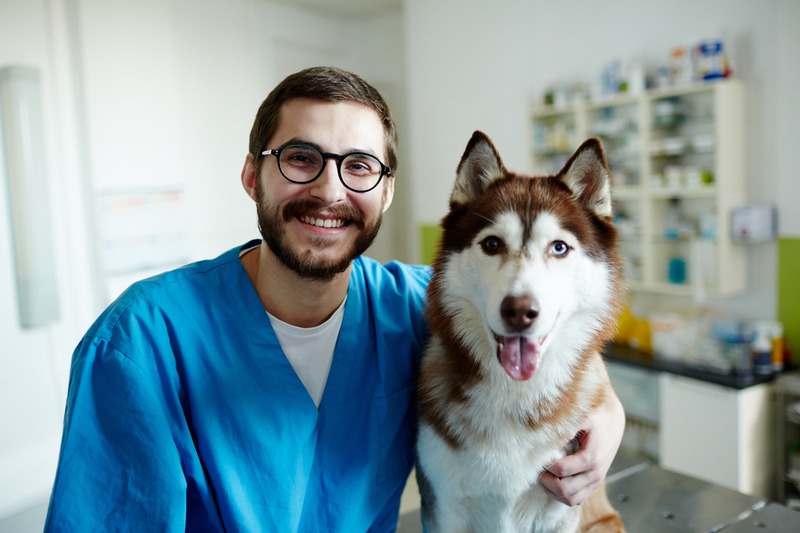
When Should Your Pet Get Blood Work Done Before a Surgical Procedure?
As a pet owner, one of our biggest worries is the health and safety of our furry companions, especially when they need to undergo surgery. Just like in humans, it’s crucial to take certain precautions to ensure the best outcome for our pets. One of the pivotal steps often recommended by veterinarians is getting blood work done before any surgical procedure. But you might wonder why and when this is necessary.
Let’s stroll through the world of veterinary care to understand the importance of pre-surgical blood tests and the role they play in keeping our loved companions safe and sound.
Understanding the Importance of Pre-Surgical Blood Work
Why Your Pet Needs Blood Tests Before Surgery
Think of pre-surgical blood tests as a behind-the-scenes look at your pet’s internal health. These tests can reveal a lot about what’s going on inside your pet’s body – things that aren’t always visible from the outside. Blood work helps veterinarians detect any underlying conditions that could impact the safety and success of vet surgery. It’s like doing a thorough safety check before starting a long drive. Here’s why it’s vital:
-
Identifying Hidden Conditions: Blood work can uncover hidden illnesses that your pet may not be showing symptoms of yet. This includes liver or kidney disease, diabetes, or infection.
-
Assessing Organ Function: Surgical procedures often require anesthesia, and it’s crucial that your pet’s organs can process and eliminate anesthesia safely. A blood test will ensure their liver and kidneys can handle the job.
-
Ensuring Safe Anesthesia Levels: Blood work helps determine the safest dose of anesthesia for your pet, reducing the risk of complications.
-
Creating a Baseline: If something unexpected happens during or after the surgery, having pre-surgical blood work gives vets a baseline to compare against, aiding in quick diagnosis and treatment.
What Pre-Surgical Blood Tests Generally Include
Blood tests usually cover a couple of essentials. First, you’ve got a Complete Blood Count (CBC) that looks at red and white blood cells and platelets. This test can point out signs of anemia, infection, and the blood’s clotting ability – all crucial for surgery. Then there’s the Chemistry Panel, which zeroes in on organ function, including those ever-so-important liver and kidney enzymes, along with glucose levels and electrolytes. Sometimes, your vet might also recommend a thyroid test, especially for older pets, to ensure their metabolism is up to speed.
Timing is Everything
When to Schedule Blood Work Before Surgery
So, when should your pet roll up their furry sleeve for blood work? Ideally, it’s best to get it done a few days to a week before the scheduled vet surgery. This gives your vet enough time to go over the results and make any needed changes to the surgical plan. If the blood work turns up something concerning, you’ll have some wiggle room to address it before going under the knife.
The Role of a Pet Laboratory in Pre-Surgical Planning
The expertise and quality of the pet laboratory in Turlock can play a crucial role in pre-surgical planning. A good lab ensures accurate, timely results so that your vet can make the best decisions for your pet’s health. It’s the linchpin for a safe and successful surgical outcome.
Special Cases and Considerations
Older Pets and Those with Pre-Existing Conditions
If your pet is a senior citizen or comes with a pre-existing health condition, that pre-surgical blood work becomes even more critical. As pets age, the risk of complications during anesthesia and surgery increases. Pre-existing conditions, like heart disease or hormonal disorders, can also heavily influence surgical outcomes. In these cases, your vet, possibly an internal medicine veterinarian, will be extra cautious, tailoring both the blood work and the surgical plan to fit your pet’s unique healthcare needs.
Anesthesia-Specific Blood Testing
Anesthesia transforms a potentially painful procedure into something peaceful and pain-free for your pet. But it also adds a layer of risk. Certain blood tests focus specifically on how well your pet’s body will handle anesthesia. These evaluations will look at clotting factors, liver and kidney markers, and, in some instances, heartworm status to ensure your pet can bounce back post-surgery.
Follow-up and Aftercare
Interpreting Results and Making Decisions
After the tests are done, your vet will sit down and have a good look at the results. Our pets can’t tell us if they feel off, so these results are our best clue into their health status. If something’s amiss, your vet might postpone the surgery, initiate treatment for any discovered conditions, or adjust the surgical plan to make it as safe as possible.
It’s all about making informed choices. You and your vet will form a team, weigh the risks and benefits, and decide on the best course of action for your furry family member. It’s both a science and an art, and it’s what good veterinary care is all about.
Post-Surgical Blood Work: Monitoring Recovery
Now, we’ve talked a lot about pre-surgical blood work, right? But what about after the operation? Sometimes, your vet will recommend another round of blood tests to check how well your pet is recovering, especially if the surgery was a major one or if there were any complications. It’s like a follow-up appointment but for the inside of your pet’s body.
Final Thoughts
Pre-surgical blood work is essential and non-negotiable for pet safety during surgery, providing a clear picture of their health regardless of age or condition. It reveals potential risks, allowing for informed decisions and preparation prior to surgery. This process underscores the comprehensive care we provide our pets, combining affection with responsible health practices. It emphasizes the importance of treating pets as cherished family members, ensuring they receive the best care through all aspects of well-being, including medical procedures.
